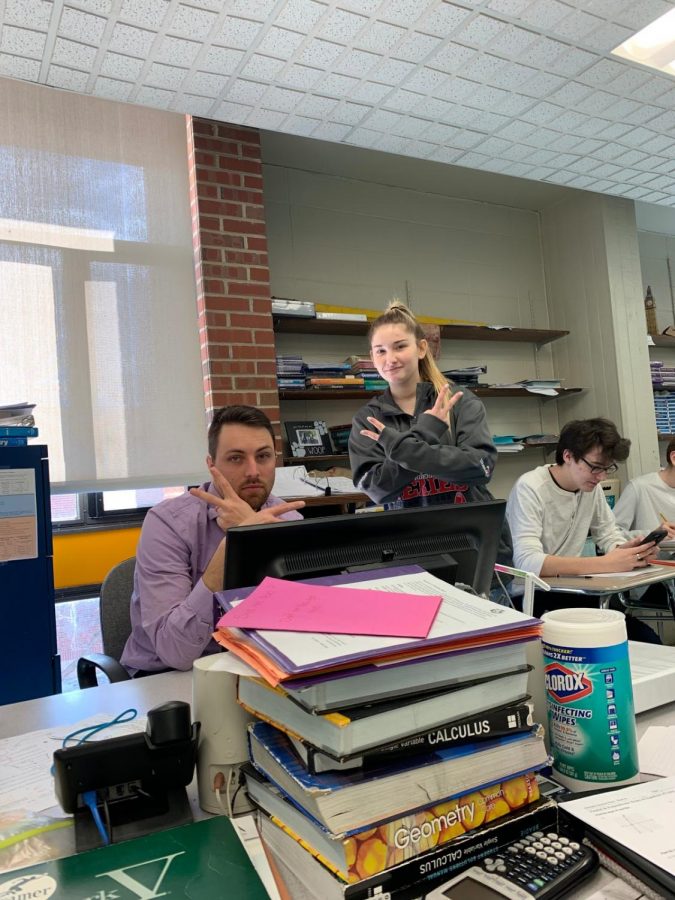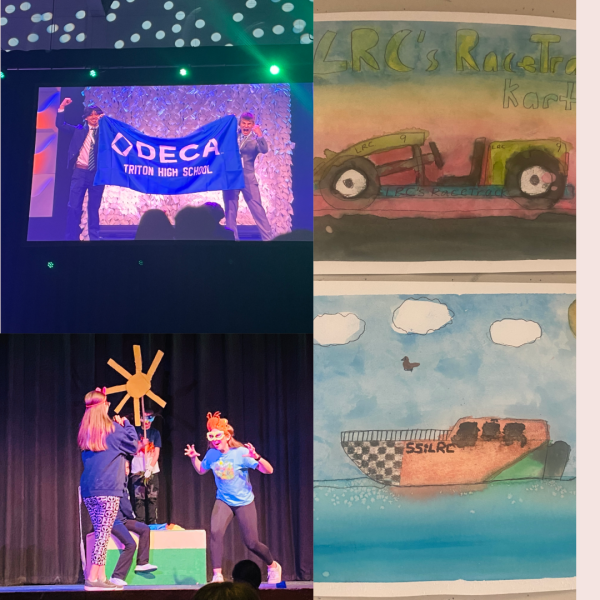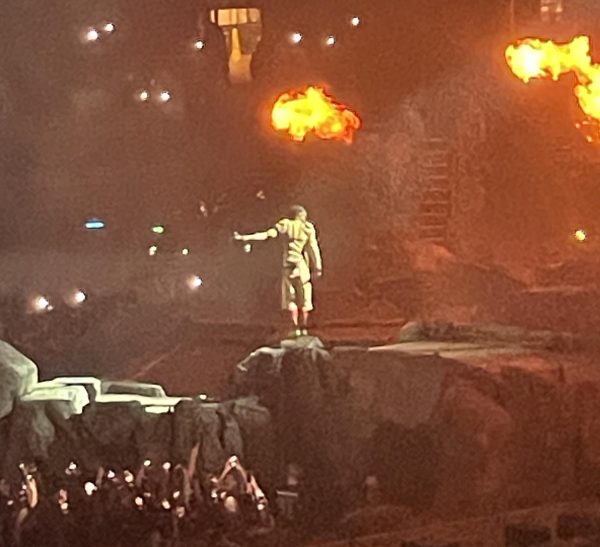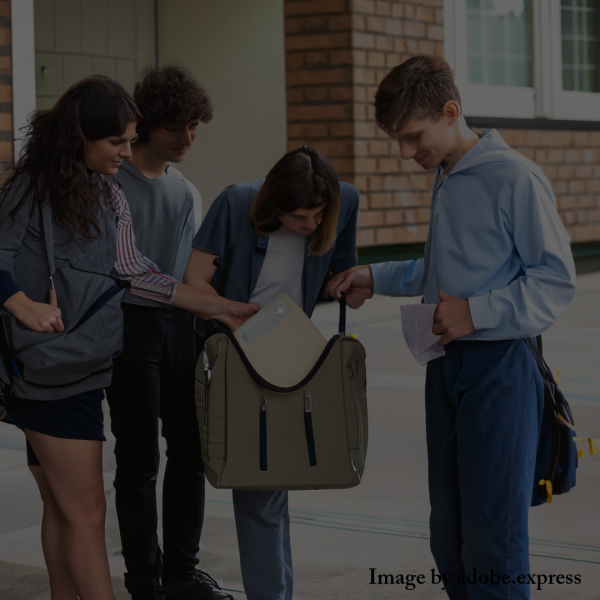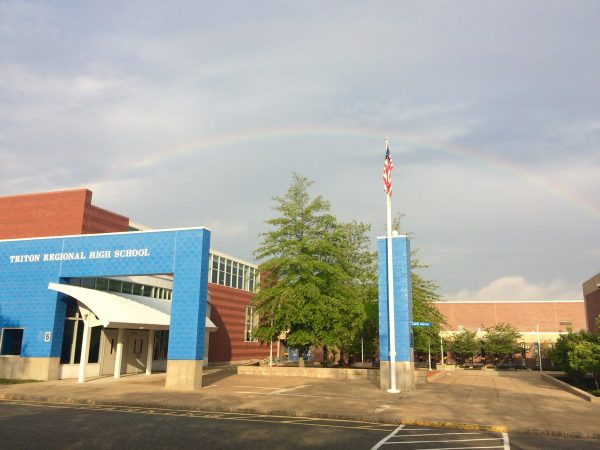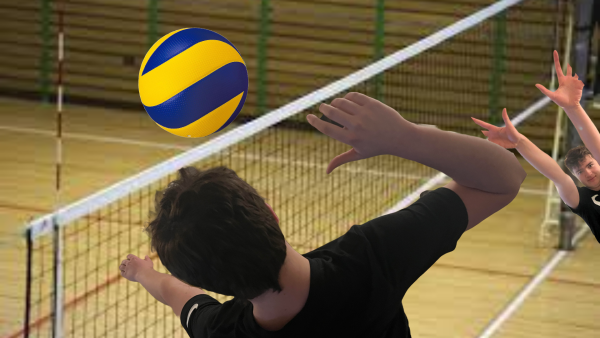Life After High School
Triton graduates thoughts on the relevance of what they learned in high school
Joseph Galante with Katherine Quigley after his interview about high school.
Two Triton High School alumni, Marlee Smith and Julia Rennie, were asked about their opinion on if they needed all the information they learned throughout their four years in high school. Both these Triton graduates felt as though the majority of the subject matter they learned in high school didn’t apply to real life, but the work ethics they learned are still helpful for them.
Smith graduated last year and is attending Penn State to become an elementary school teacher.
When asked if all the things she learned in high school applies to her real life she said, “Absolutely not. Majority of the things I learned throughout high school are pointless and not relevant to my real life. Although, I did learn many useful things at Triton that I will definitely use throughout my life.”
In spite of that, Smith said, “I think some knowledge in every subject is necessary and can help point teenagers in the direction of their future major. But, some subjects and topics in high school are not necessary at all.”
Smith said, “The least important thing I learned throughout high school was many topics in science, math, and many books that we had to read which were straight up irrelevant.”
Julia Rennie, Triton graduate, was asked the same question she had a similar answer. “Personally I found what I wanted to do through my own experiences unrelated to school. I’m going to school to be a physical therapist and nothing in high school has helped me choose that.”
Rennie was asked if she thought students should continue to have to learn certain subjects knowing they won’t end up applying to their lives outside of high school.
“Although we got to choose our science or social studies classes the last two years of school, I feel like there should be options that are more directed to career paths in college and also options for people who know they’re not going to college. I think this would better prepare highschool students for their futures”
Smith said she felt as though there were a lot of things she didn’t need to learn in high school. “The least important thing I learned throughout high school was many topics in science, math, and many books that we had to read in English which were straight up irrelevant.”
Smith also said that she thought high school taught her more important real life things than educational.
“Now that I am out of high school, I realized that the most important thing I learned was that nothing really matters besides getting good grades and sticking with your close knit group of friends and to ignore everything else that occurs.”
Rennie said something similar to Smith regarding life lessons she learned in high school rather than actual information.
“The most important thing I learned in high school was time-management and that you have to complete all your work on time. I struggled with this throughout my high school years, but as I got to the end, I improved myself,” said Rennie.
“In college there’s no one asking you for the work you need to hand in and no one telling you how to manage your workload. You have to figure out on your own and it’s most important to learn that earlier on in high school rather than when it’s too late,” said Rennie.
Triton math teacher Joseph Galante had a completely different view on the importance of high school.
When asked if he still uses all the information that he learned in high school he went through all his high school classes and gave a rundown of how each one was held importance to him.
“Everything, no, but I do feel like there are a lot of things… like I still use a lot of SAT words just for fun. It also helps you sound professional, you can use them on resumes, in real life…”
Galante feels that every single high school class holds a large amount of importance to real life.
“I teach a consumer math class here so a lot of math is entirely practical, how to buy a house, rent a car, budgeting,” said Galante.
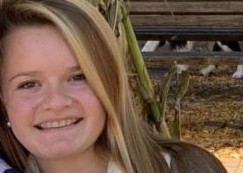
Erin Gershuny is a junior at Triton High school and She will be graduating in 2020. Erin manages the girls soccer team after school and on weekends babysits....



